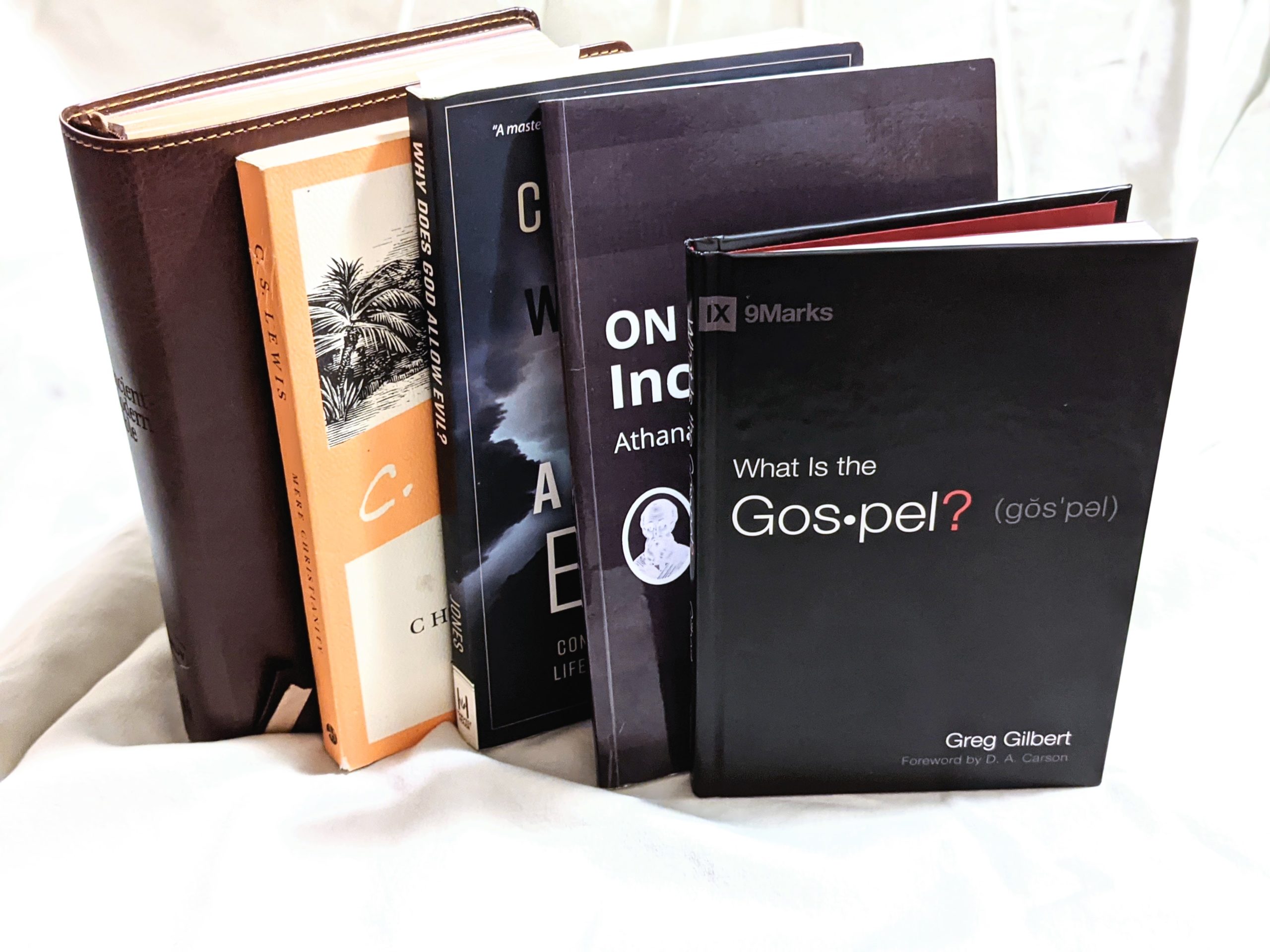
What Does it Mean that ‘God Remembers’?
If God Remembers, Did He Forget?
To remember something means to think of what you had previously forgotten. Several passages in the Bible speak of God ‘remembering’ something or Israel asking God to remember them; does this mean that God forgets things too? If the Bible says that ‘God remembers’ something, does it mean that He forgot?
God is Omniscient
Theologians describe God’s knowledge as omniscient, which means all-knowing. 1 John 3:20 says that God knows everything and Romans 11:33 describes His knowledge as deep and His judgments unsearchable. Jesus said even the hairs of our head are numbered (Matthew 10:30).
Isaiah 40:13-14 says “Who has measured the Spirit of the Lord, or what man shows him his counsel? Whom did he consult, and who made him understand? Who taught him the path of justice, and taught him knowledge, and showed him the way of understanding?” No one could teach God anything because He already knows everything. He created the world (Genesis 1:1) and directs it still (Isaiah 46:9-10). His knowledge lacks nothing.
So how do we harmonize God’s omniscience with Bible verses that describe Him as remembering something?
God ‘Remembers’
Let’s look at some examples from Scripture.
God Remembers Noah
The first example of God ‘remembering’ that we’re going to look at comes from the account of Noah’s flood.
In Genesis 7 we read about the great flood that God sent on the earth. The floods rose for 40 days, and then the waters remained on the earth for quite a while.
And the waters prevailed on the earth 150 days. But God remembered Noah and all the beasts and all the livestock that were with him in the ark. And God made a wind blow over the earth, and the waters subsided.
Genesis 7:24-8:1
God’s judgment on sinful humanity had come in the form of the flood. Still, He had preserved Noah and his family on the ark. As God remembered Noah He sent a wind to cause the waters to subside.
God Remembers Rachel
The next example is in the story of Jacob and his wives Leah, and Rachel.
The account of Jacob and his wives begins in Genesis 29. He was working for Laban and decided that he wanted to marry Laban’s daughter, Rachel in exchange for seven years of service. Laban agreed to the match, but ended up deceiving Jacob into marrying Leah, his older daughter, instead. When confronted about his deception, Laban told Jacob that he could marry Rachel if he served him for seven more years.
Jacob’s preference for Rachel led to a rivalry between the sisters. Additionally, Leah was able to have several children while Rachel remained barren. In fact, Scripture tells us that it was because of Jacob’s unfair treatment that Leah could conceive and Rachel couldn’t. Rachel’s infertility strained the relationship further, as she became jealous of her sister.
Her desperation for a child led her to take matters into her own hands instead of trusting in God; but even then she still desired to have a child of her own. Her sister Leah had six sons and a daughter while Rachel had none. But her infertility wouldn’t last forever; Rachel finally had a child.
Then God remembered Rachel, and God listened to her and opened her womb. She conceived and bore a son and said, “God has taken away my reproach.”
Genesis 30:22-23
Rachel was desperate to have a child though it seemed hopeless, but God remembered her and she had a son.
God Remembers Hannah
In a story with several similarities to Rachel’s, the next example is regarding Hannah, the mother of Samuel.
Hannah was the wife of Elkanah along with Peninnah, and they were also rivals. Peninnah would provoke Hannah, mocking her barrenness, but Elkanah loved her anyway. Every year they would go to Shiloh and sacrifice to the Lord, and every year Elkanah would give a portion to Peninnah and all her children, but he would give Hannah a double portion. And every year Peninnah would provoke Hannah and she would weep and not eat.
One day she sat outside the temple, weeping and praying to the Lord for a son when Eli the priest saw her there. When she explained that she was praying to the Lord he told her to go in peace, blessing her, saying “the God of Israel grant your petition that you have made to him,” (1 Samuel 1:17). Then Hannah left, ate, and no longer appeared sad.
After worshiping the next day they went back home. Then the Lord remembered Hannah (1 Samuel 1:19)
And in due time Hannah conceived and bore a son, and she called his name Samuel, for she said, “I have asked for him from the LORD.”
1 Samuel 1:20
Hannah had to face ridicule for her infertility, but God remembered her and gave her a son.
God Remembers His Covenant with Israel
Finally, we’re going to consider God remembering His covenant with Israel.
When Jacob and his descendants moved to Egypt in the land of Goshen, they were treated well for Joseph’s sake. But as time went on and new generations rose up, that relationship changed. The new Pharaoh was worried that the many Israelites would join Egypt’s enemies and conquer them. Because of this, he decided to do everything he could to stifle the fast-growing people. He enslaved them, working them hard in hopes that they would grow weary and weak. He commanded the Hebrew midwives to kill every son born to the Israelites, forcing the daughters to marry Egyptians and assimilate into that culture.
These tactics didn’t work as well as he had hoped, but even so Israel was enslaved and oppressed and they cried out to God.
During those many days the king of Egypt died, and the people of Israel groaned because of their slavery and cried out for help. Their cry for rescue from slavery came up to God. And God heard their groaning, and God remembered his covenant with Abraham, with Isaac, and with Jacob.
Exodus 2:23-24
Immediately after this passage is the account of God speaking to Moses from the burning bush, instructing him to bring Israel out of Egypt, freeing them from bondage.
Israel was living in a foreign land facing oppression and genocide, but God remembered them and brought them out of Egypt.
The Pattern of Scripture
Do you see the pattern? Someone is in a desperate situation and then God remembers them and acts for them. When the Bible says that God ‘remembers’ someone it means He is about to act on their behalf. The use of the word ‘remember’ is metaphorical anthropomorphism, speaking of God in the same way you would speak of a human. It’s used for emphasis, highlighting what He is about to do. (1)
For those in the examples above, it probably seemed as if God had forgotten them, because nothing seemed to be changing. That God ‘remembered’ them indicated that He was going to change their situation.
If you’ve ever been in a desperate situation where it felt like God has forgotten you, you can be sure of two things:
One, God is omniscient and knows all things. He neither forgets nor forsakes His children.
Two, just as God remembered His covenant with Israel and acted on their behalf, He will remember His covenant with His church and act on our behalf. Even when Israel was faithless God remained faithful and kept His covenant.
God does not change; He is still faithful and He will always be faithful. Just as He remembered Noah, Rachel, Hannah, and His covenant with Israel, God will remember us.
Have you ever felt like God has forgotten you? How does understanding God’s remembrance encourage you? Feel free to share your thoughts in the comments.
Notes:
- https://www.gotquestions.org/God-remembered.html





